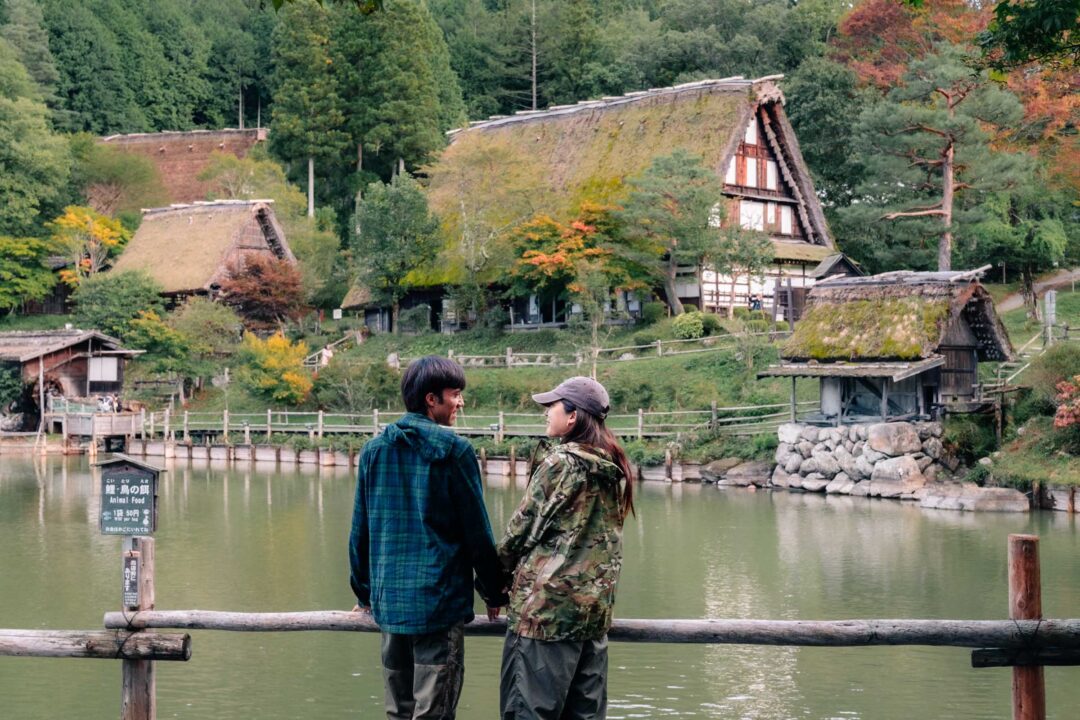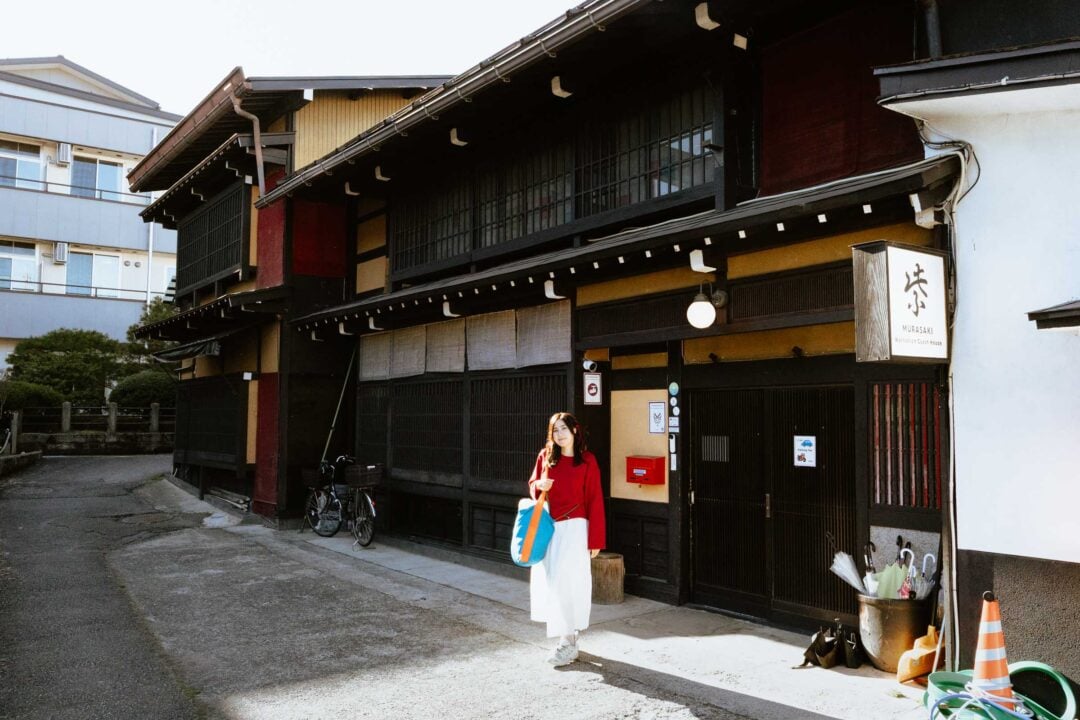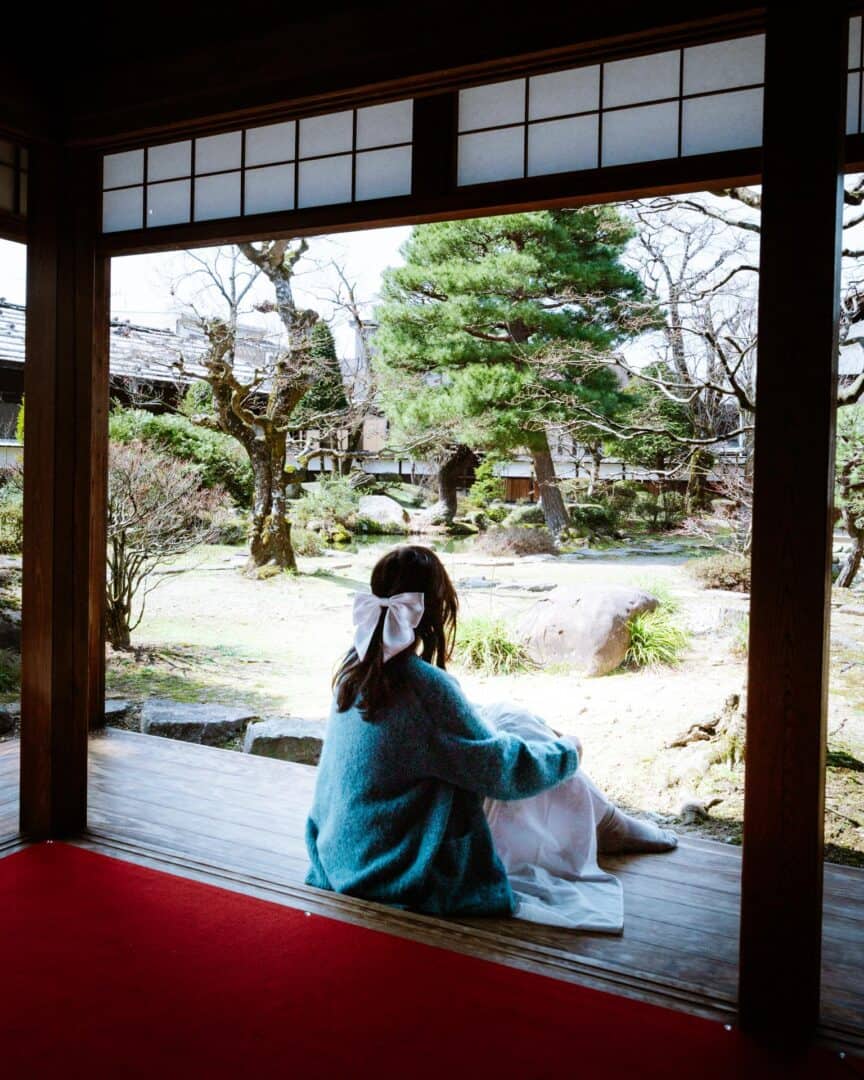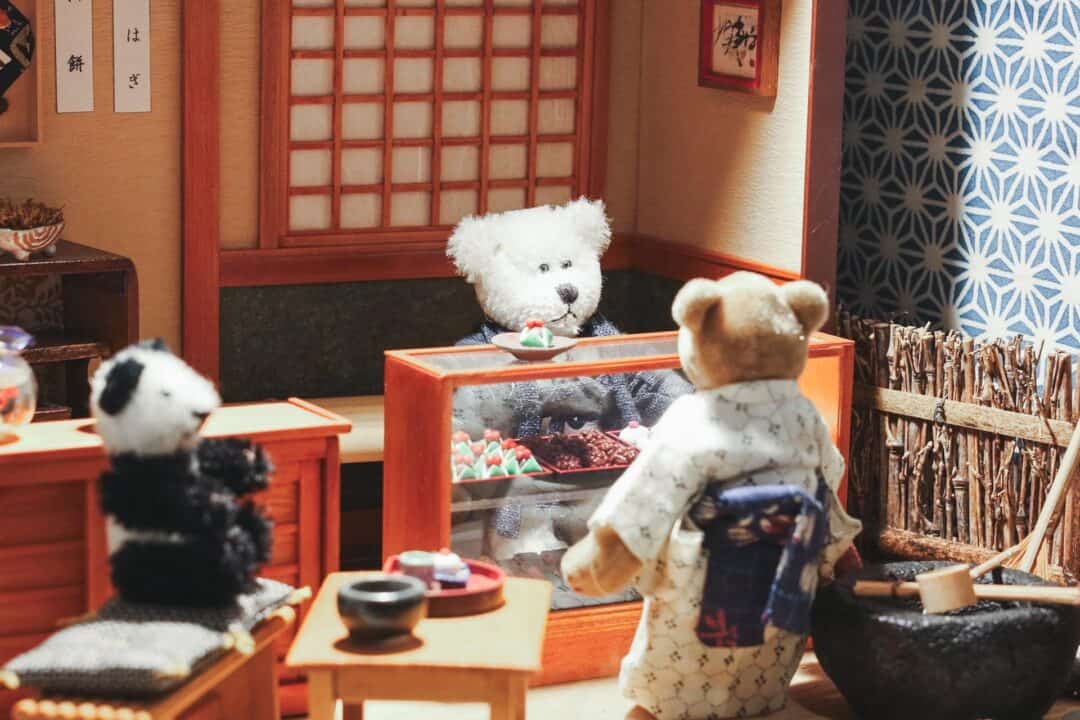While Japan is often associated with towering skyscrapers and hyper-modern cities, rural life in the mountains tells a different story. It’s one that few travelers get to experience. That’s exactly what Hida Folk Village provides: a look into the daily life of an Edo-period mountain village.
The wooden houses in Hida Folk Village date back as far as the 1600s, with their triangular thatched roofs becoming somewhat of a symbol of Takayama. These homes are often compared to those in Shirakawa-go, but the village here is much easier to get to.
Better yet, most of the buildings in Hida Folk Village aren’t just for show. You can enter them and find actual tools and everyday objects from centuries ago.
So much so that when we visited, we thought we’d be in and out within an hour. Instead, we ended up spending over three hours there!
In this guide, I’ll share everything you need to know about visiting Hida Folk Village in Takayama, including how to get there and what to expect when you arrive.
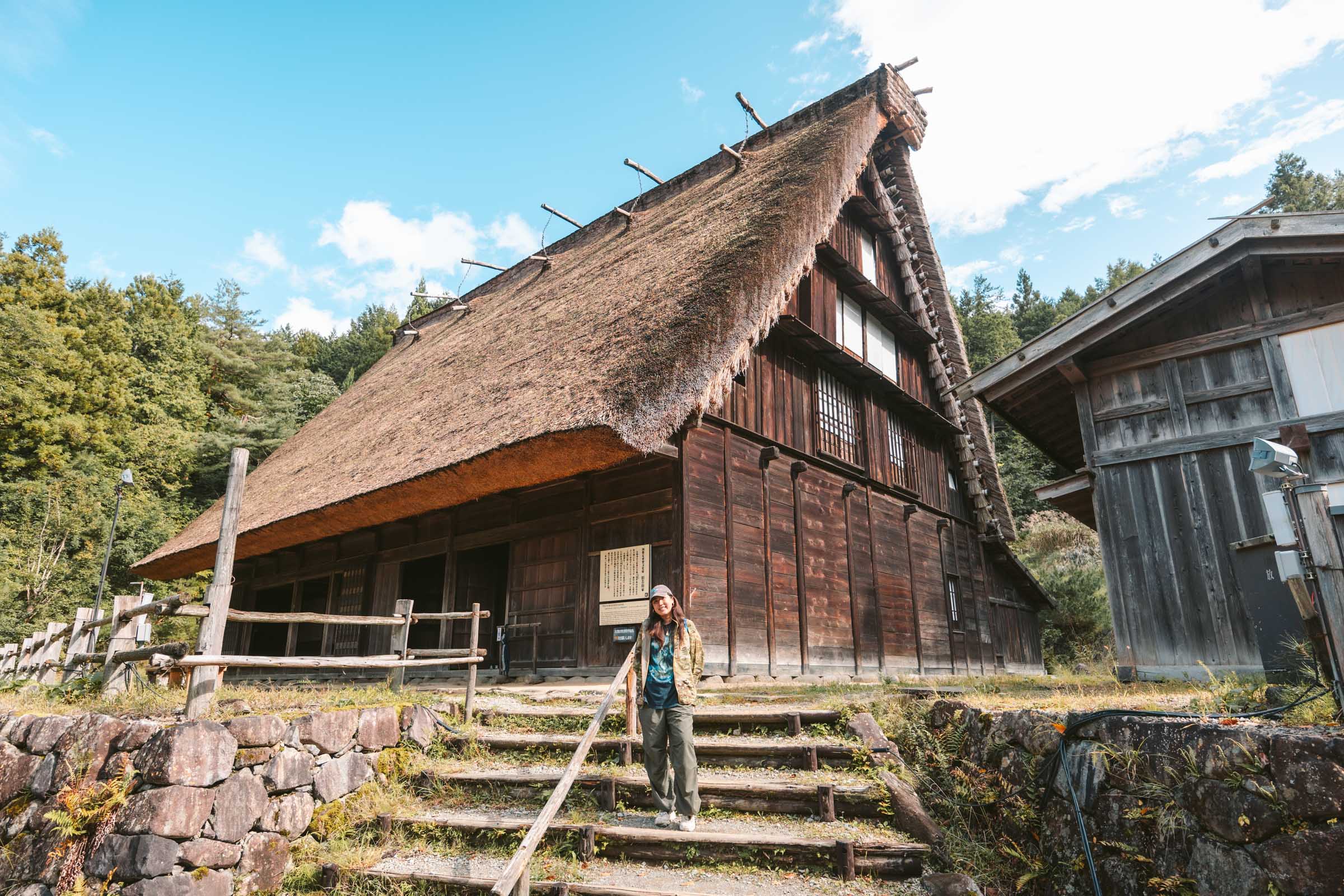
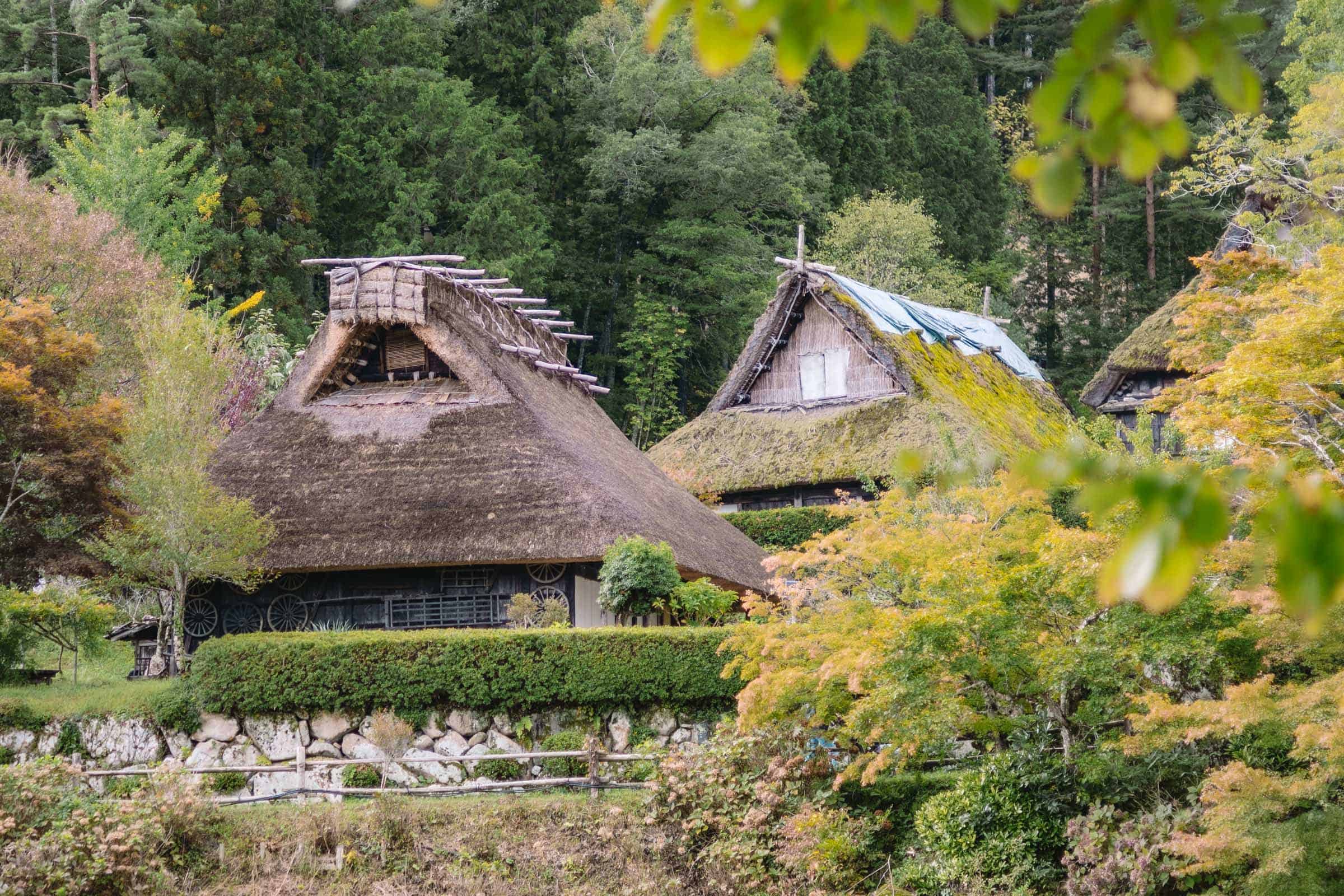
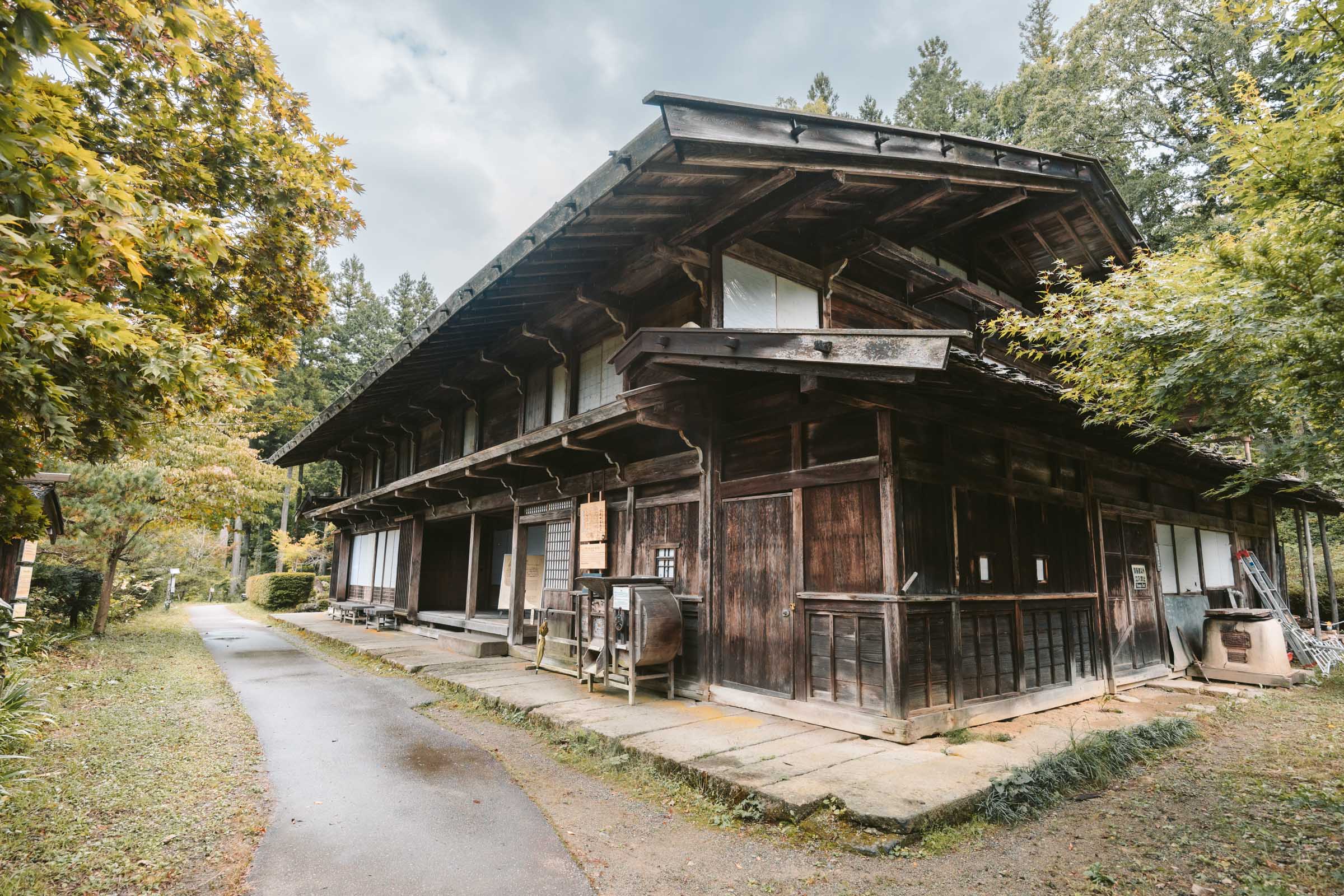
Hida Folk Village Complete Guide
Hida Folk Village is a recreation of a traditional mountain village from 18th-century Japan. Inside the village are authentic buildings that have been relocated to the site from across the Hida region.
This open-air museum in Takayama provides a look into the daily life of those who lived in the mountains of rural Japan, with well-preserved farmhouses, workshops, and communal spaces.
We found the buildings in Hida Folk Village fascinating. My favorite aspect was seeing how people in different social classes lived. Wealthier families lived relatively comfortable lives, while the working class such as blacksmiths and farmers had it pretty rough.
Inside the buildings in Hida Folk Village are tools, artifacts, and exhibits that illustrate how people lived and worked in Japan’s mountainous countryside centuries ago.
As an alternative to the popular Shirakawa-go, the Hida Folk Village is much easier to get to and has fewer crowds, but many of the same thatched-roof style buildings as Shirakawa-go.
- Hida Folk Village entrance fee: 700 yen per person
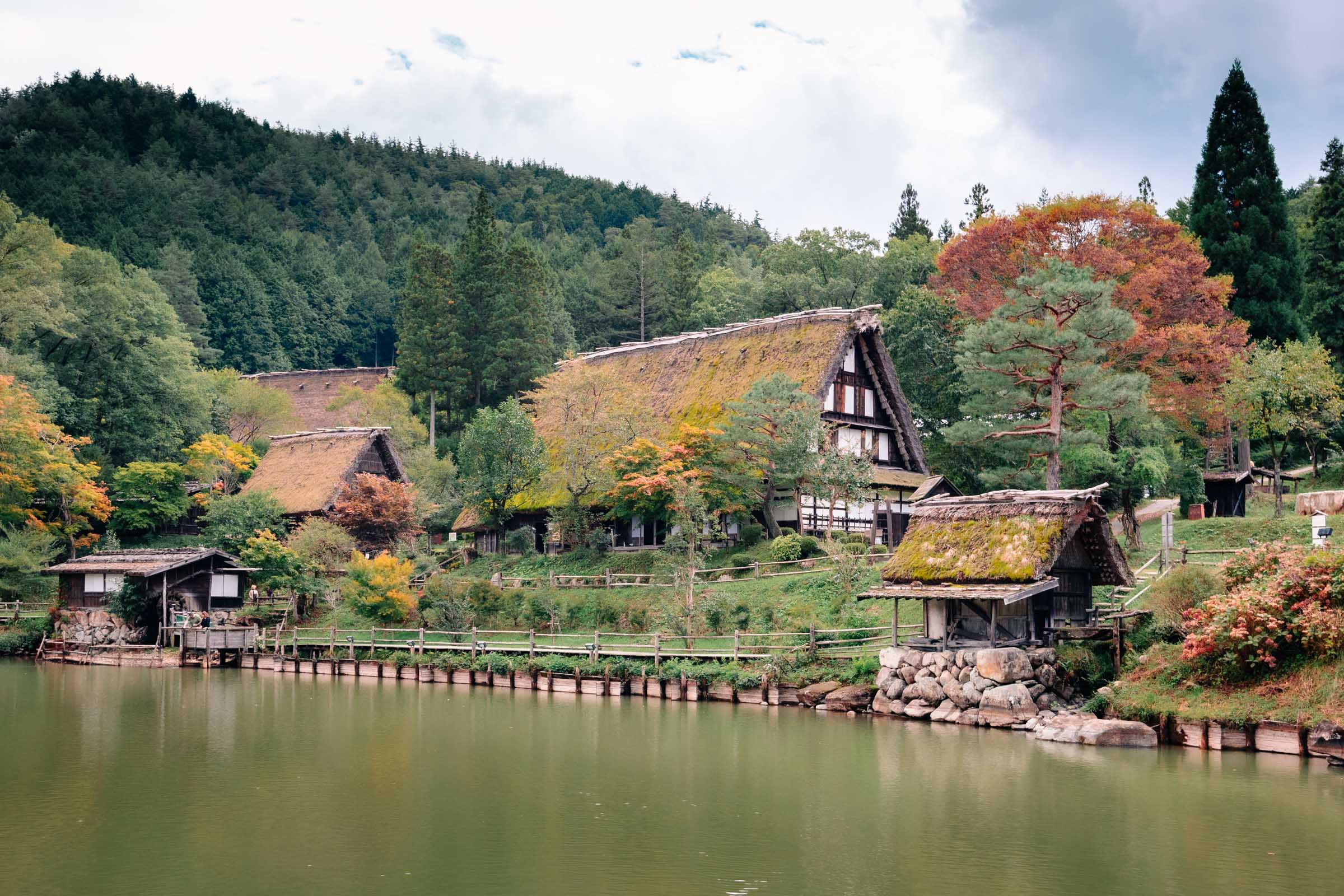
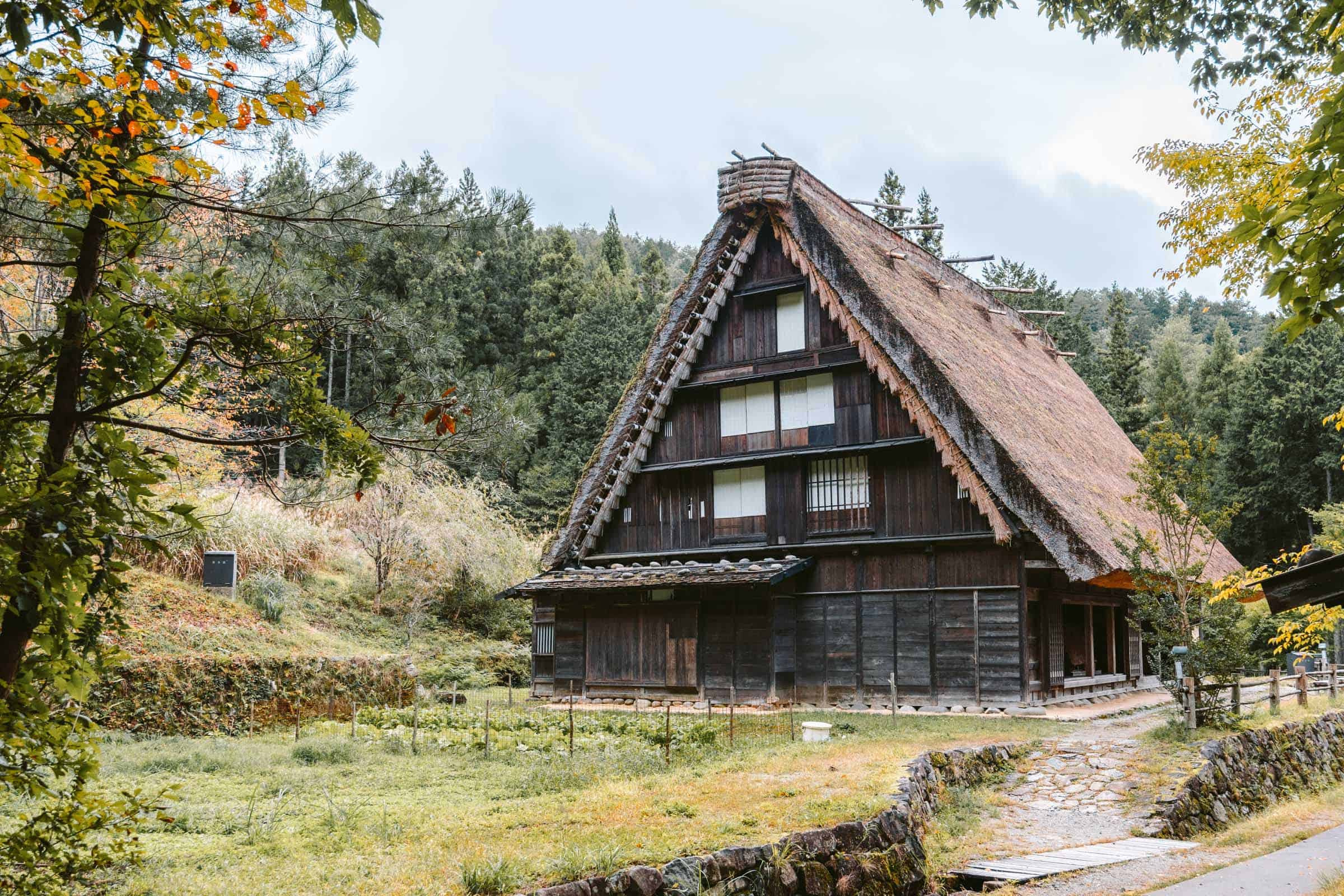
How to Get to Hida Folk Village
The easiest way to get to Hida Folk Village is to take the Sarubobo Sightseeing Bus from Takayama Bus Center. This bus runs twice per hour and stops right in front of Hida Folk Village.
Alternatively, you can also walk to Hida Folk Village, but I don’t recommend it. Hida Folk Village is a bit far from Takayama, and the road goes uphill as you approach the village.
If you want to walk, I recommend taking the bus to Hida Folk Village and then walking back to Takayama. That’s what we did. The return walk is all downhill and goes by quickly.
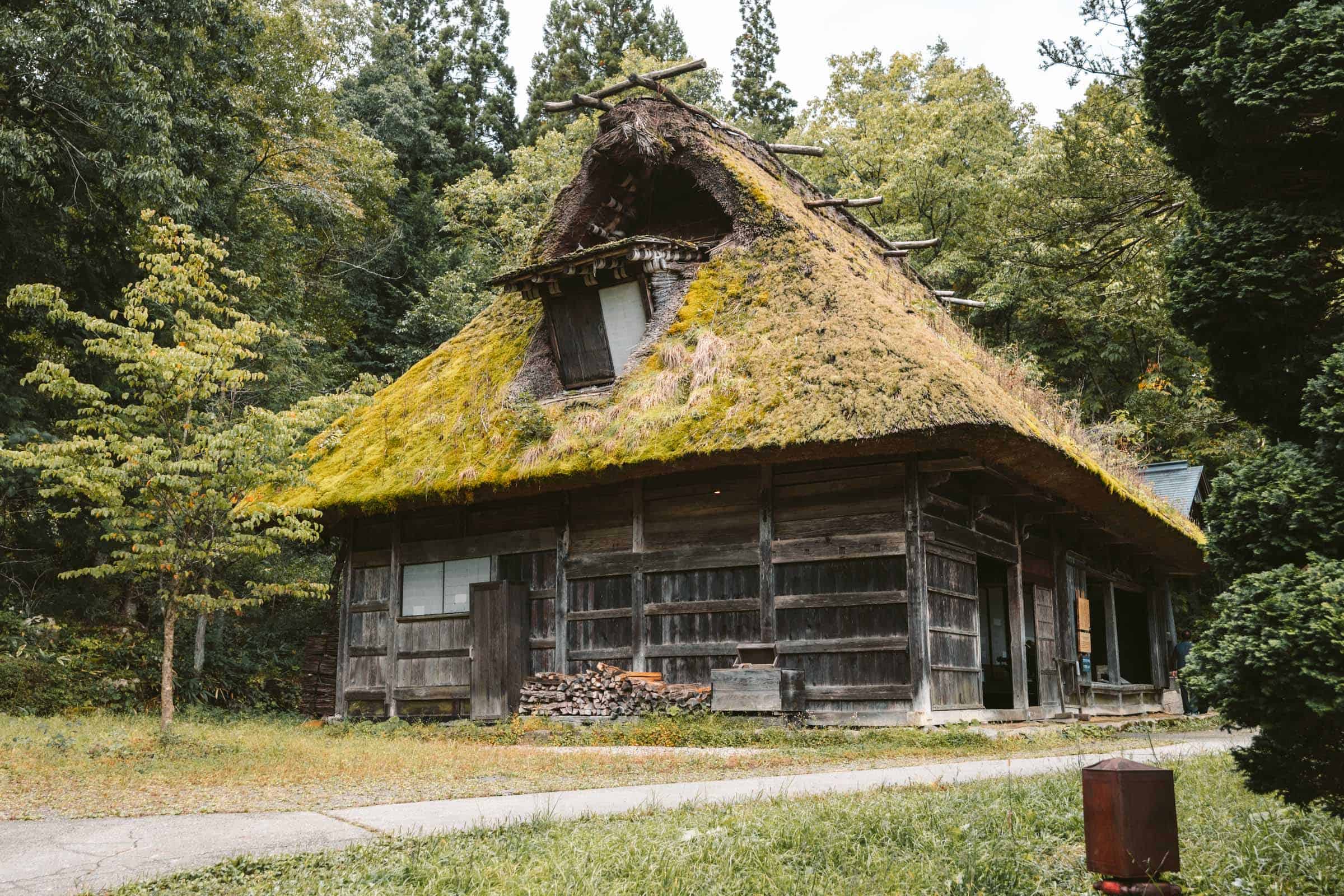
Hida Folk Village: Our Experience
We visited Hida Folk Village on our first trip to Takayama in October. It was a beautiful day, and rather than making the long trip to Shirakawa-go just to see thatched-roof houses, we went to Hida Folk Village instead.
Looking back, visiting Hida Folk Village was a great decision. I’ll explain why below.
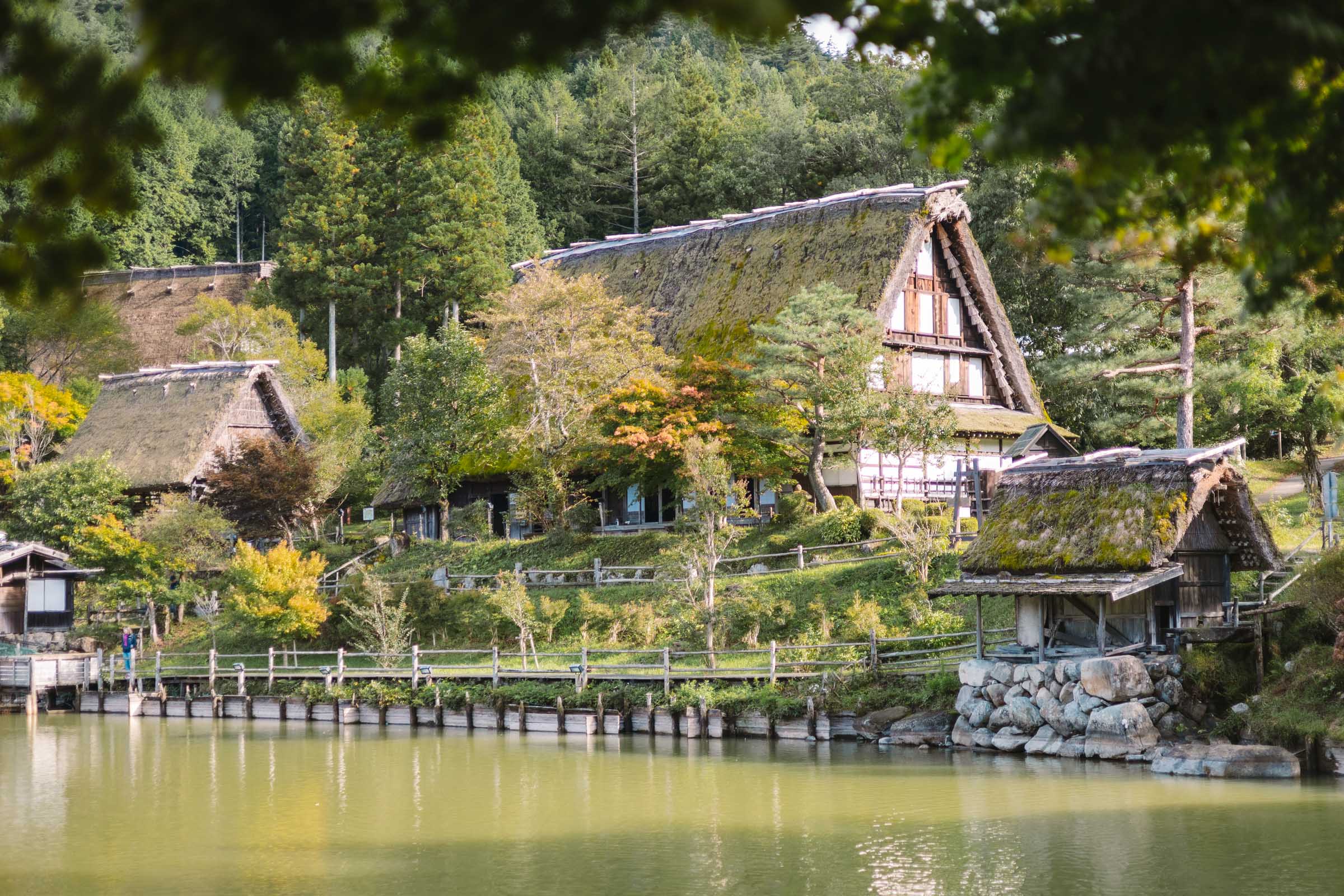
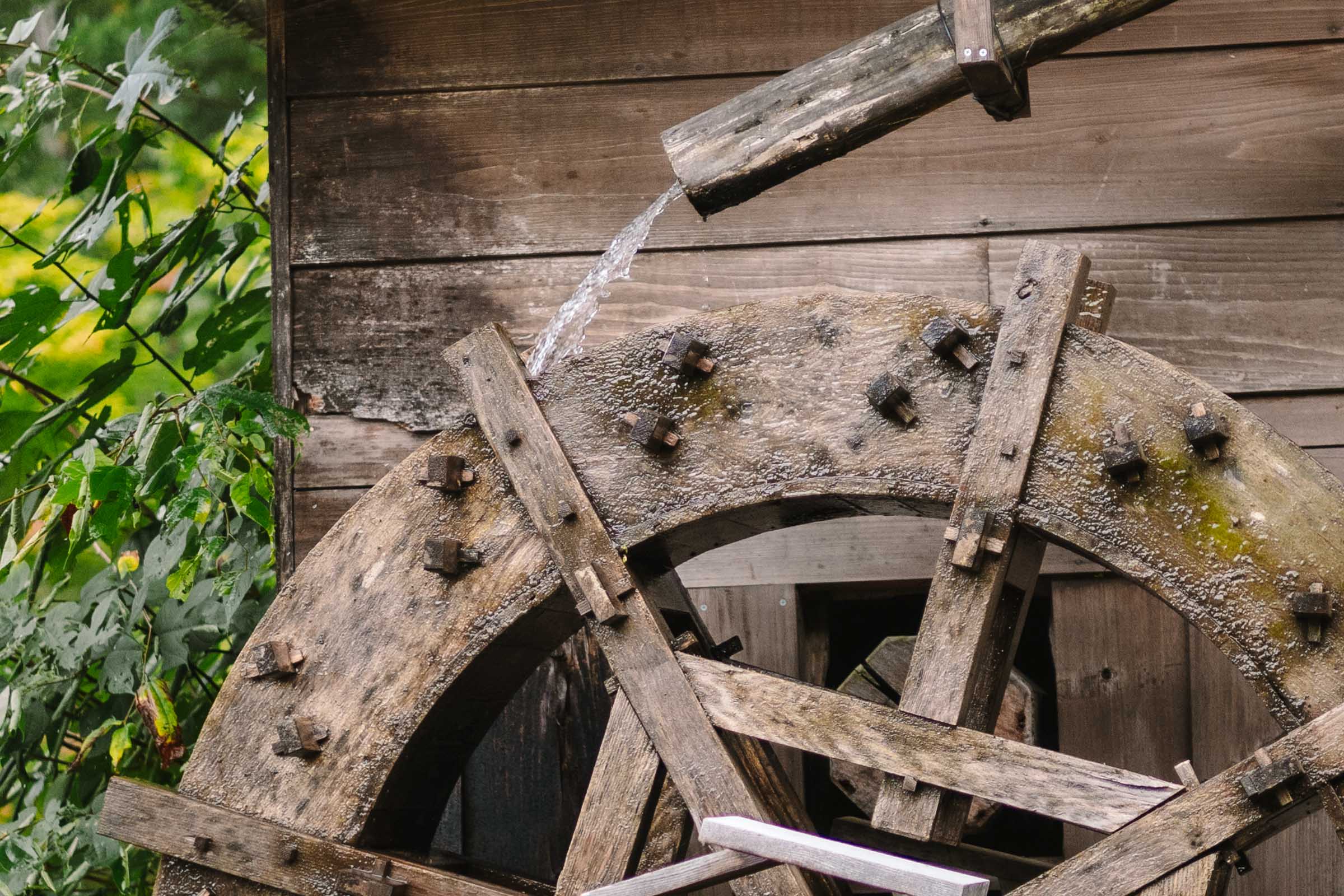
First, Hida Folk Village was practically empty. We didn’t have to navigate through crowds, wait for people to move, or worry about getting into other people’s photos.
If you’ve visited other tourist spots in Japan, you know how crazy things can get with crowds. But this place had none of that.
Second, the scenery was amazing. As we walked in, we were met with the sight of a pond below traditional thatched-roof houses all set under a mountainous backdrop. As the water wheel gently turned, we got the feeling that we were stepping back in time to a Japanese mountain village.
Finally, Hida Folk Village was easy to get to. Compared to the long journey to Shirakawa-go, reaching Hida Folk Village was effortless. We caught a city bus from the town center to get there. We could have even walked if we wanted to. In fact, we did end up walking back when we left. No stress at all.
When we first entered Hida Folk Village, I had no idea we’d end up spending as much time there as we did. At first, I thought it would just be a nice place to walk around and admire old buildings, but it turned out to be much more than that.
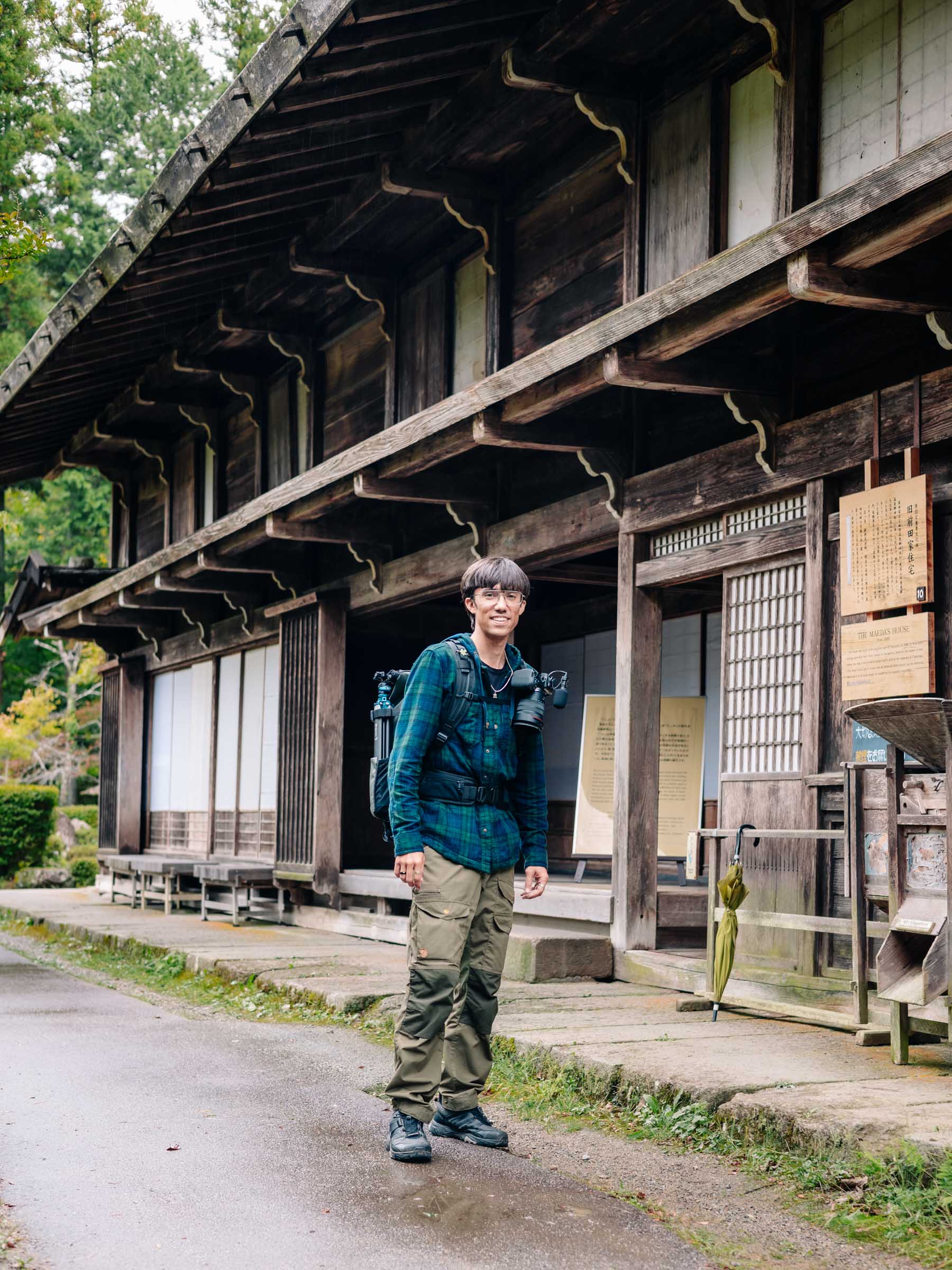
Each building was like a mini-museum. The blacksmith’s house had an impressive collection of blacksmithing tools, while the farmer’s house displayed straw clothing used for protection against the harsh winters. It really gave us a sense of how tough life was back then, let alone in the mountains having to contend with the cold and snow.
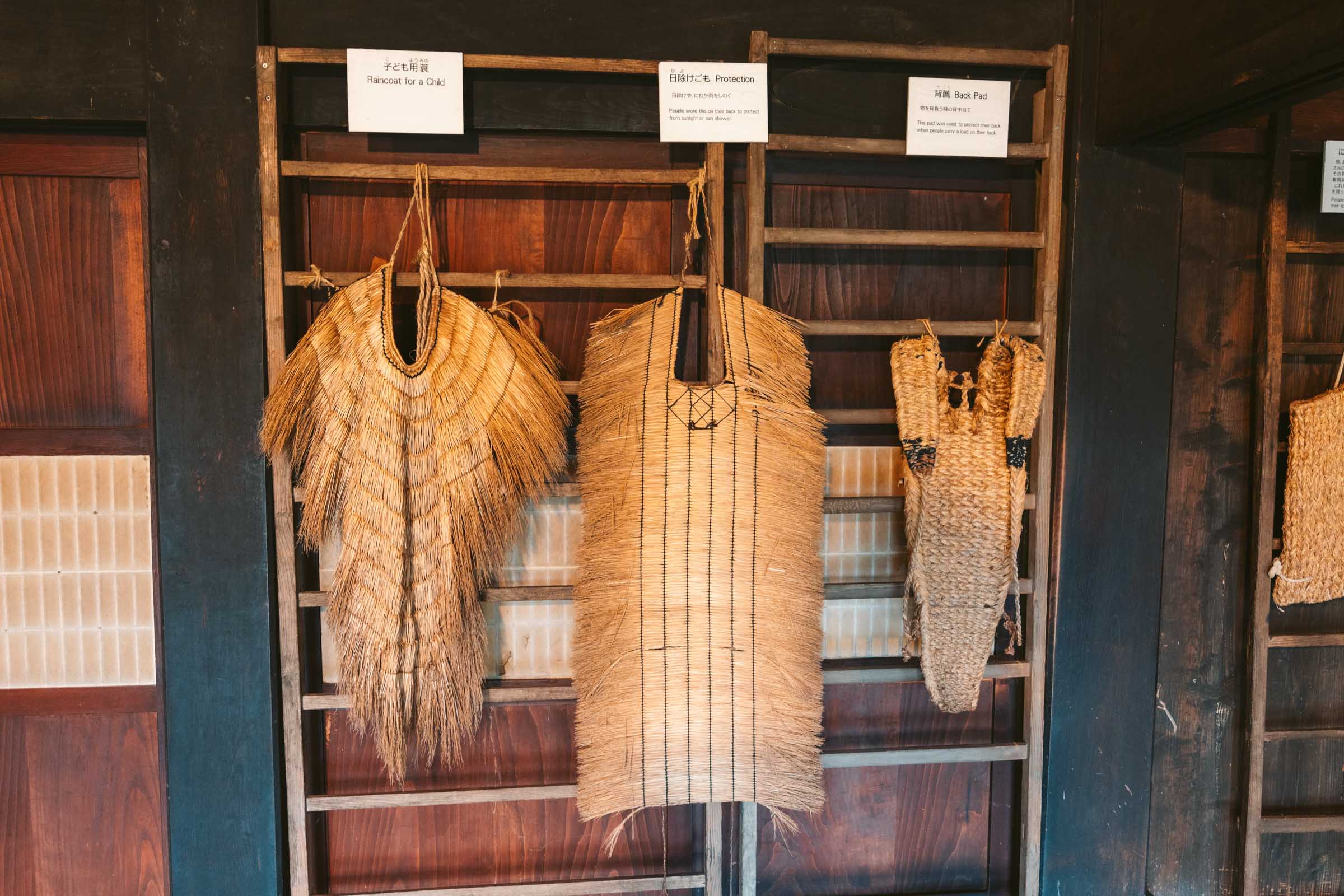
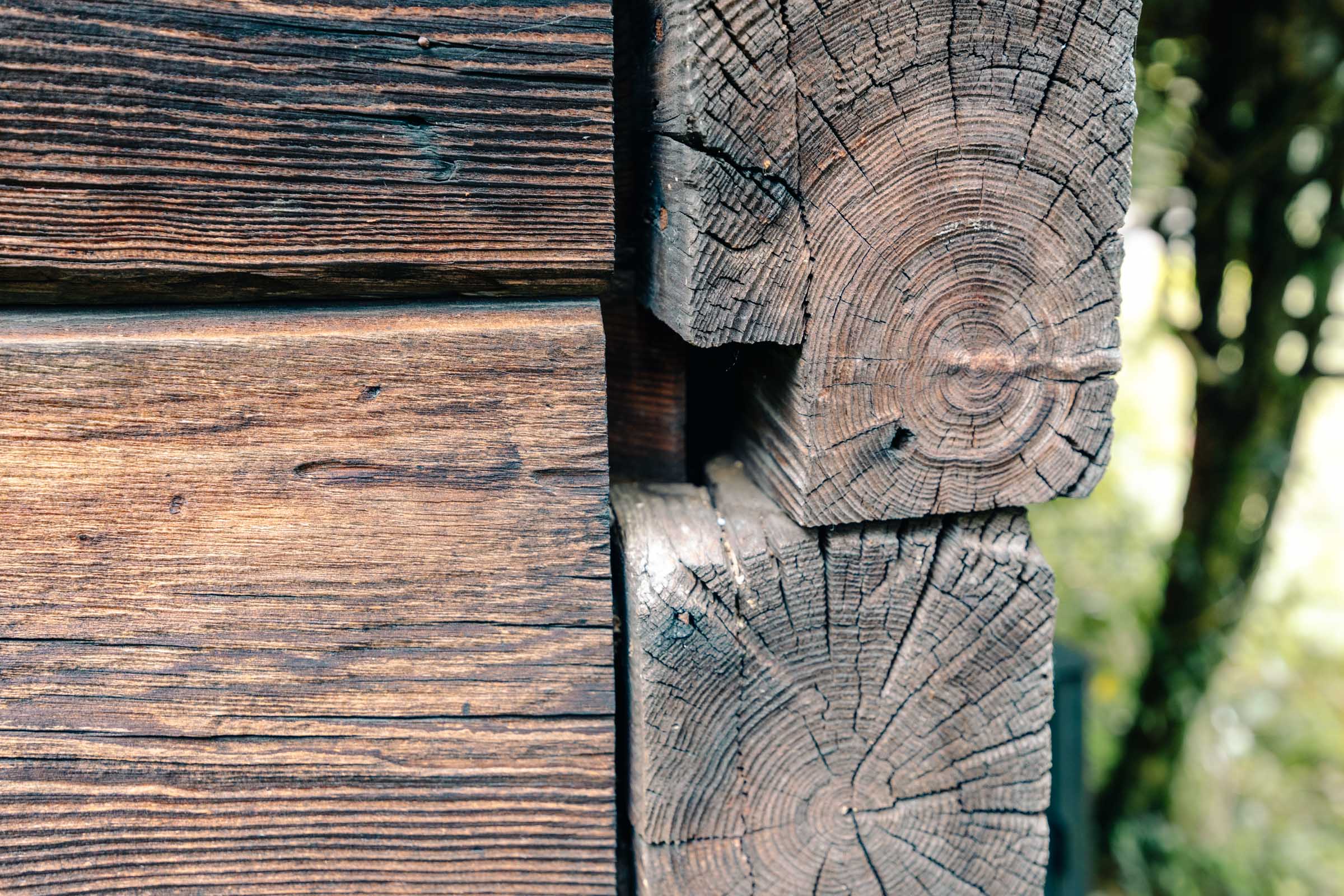
Over the next few hours, we wandered in and out of dozens of buildings. There are 30 in total, and I’m sure we missed a few.
One of the most interesting was a multi-story house that featured an exhibit on silk-making. The upper level showcased all the tools and processes involved in producing silk. This place really made me pause to appreciate just how much skill and knowledge was needed to create something as simple as fabric.
At the back of the village, we spotted a shrine on a hilltop. No Japanese village would be complete without one, right? We’re always up for a little hike, so we climbed the staircase to check it out and take a detour into the forest.
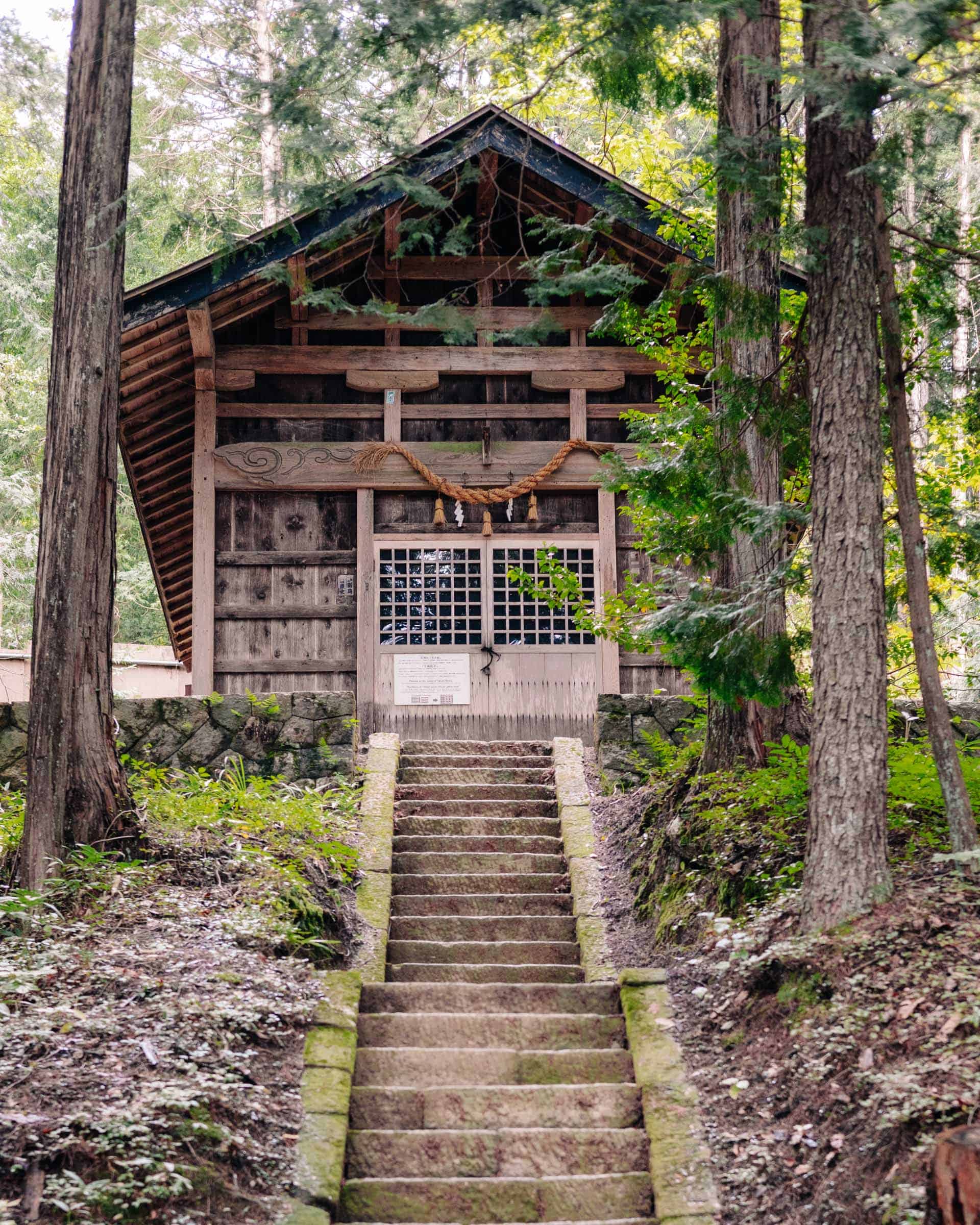
Before leaving, we stopped by the artisan’s houses. It’s an area where local artisans have their own studios inside the village. We spent some time admiring their work, appreciating how they continue to preserve and share their traditional crafts.
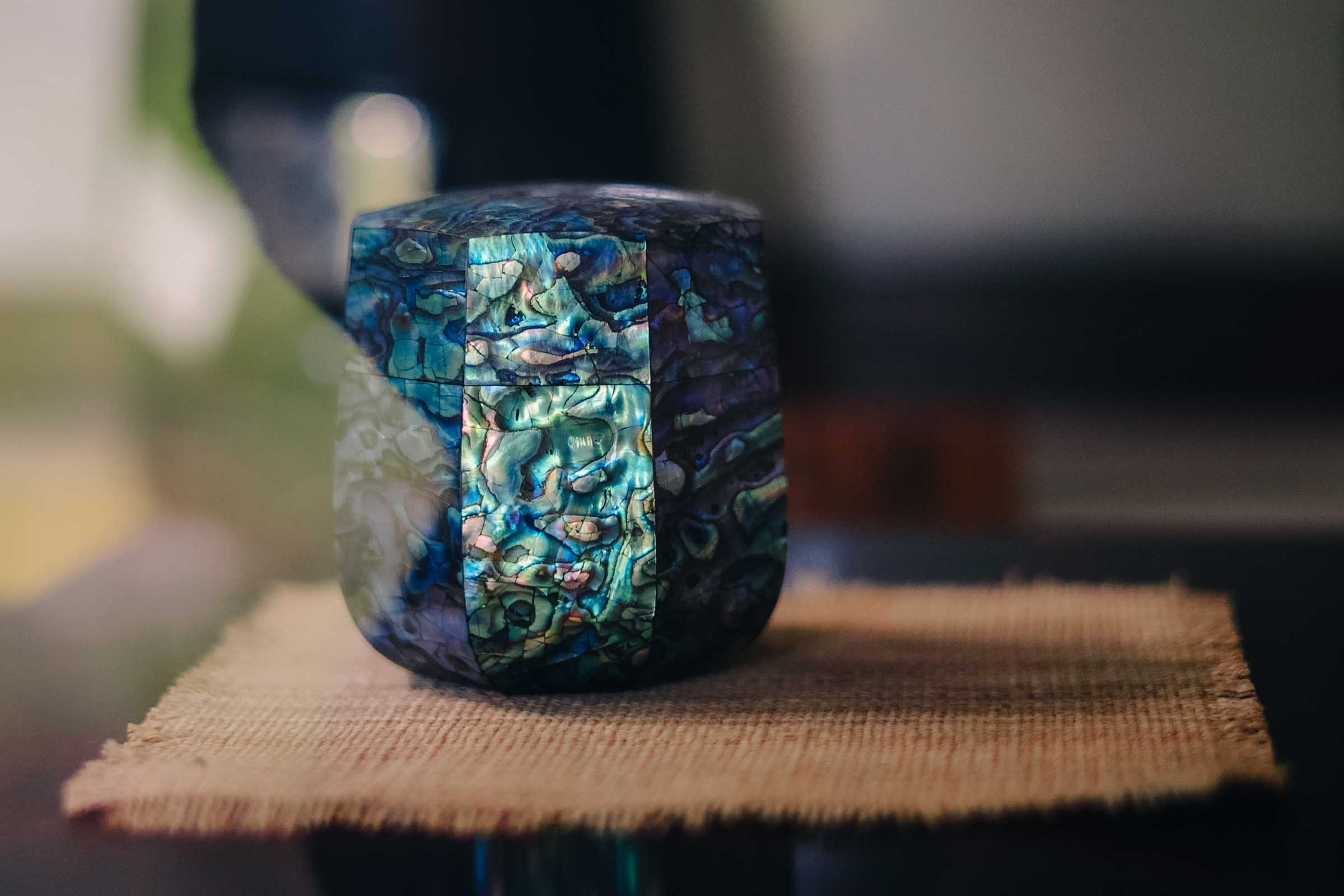
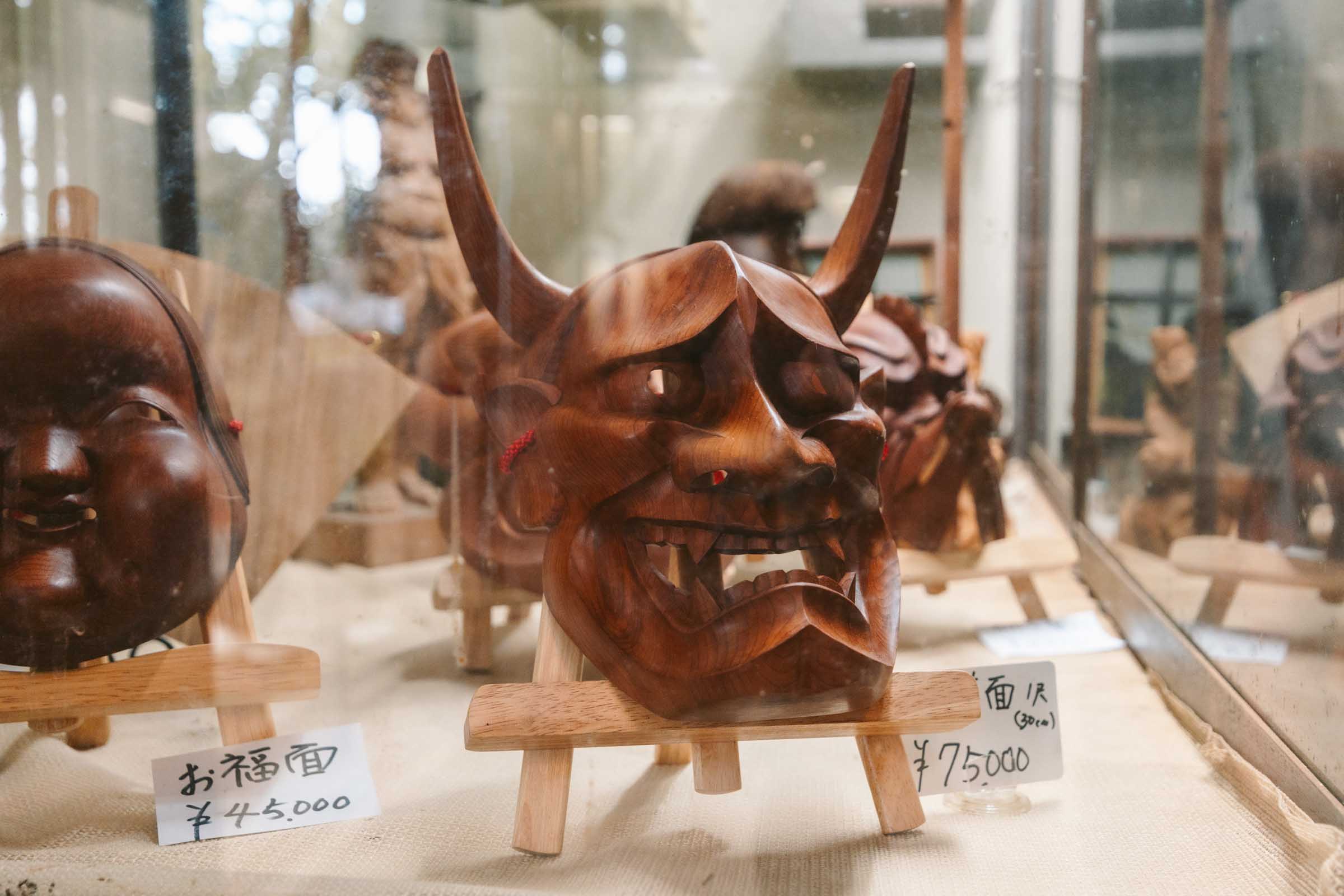
Where to Stay in Takayama
We stayed at both a traditional Ryokan and a Western-style hotel during our visits to Takayama. Both were exceptionally wonderful, super clean, and comfortable.
Here are the places we stayed at in Takayama and our recommendations:
- Hostel Murasaki – Japanese-style ryokan: Staying in this ryokan gives you that traditional feeling like you’re in old Japan. It is also budget-friendly. The ryokan has a shared kitchen so you can cook your food and a large living room to meet other travelers.
- Koko Hotel – Western-style hotel: This hotel is a new and modern accommodation. The rooms are clean and comfortable, but a bit on the smaller side, which is normal for Japan. The lounge area in the hotel’s lobby opens up in the afternoon, so you’re free to sit and work there and enjoy free drinks.
- Hotel Wood – A cross between a traditional Japanese ryokan and a modern hotel. Located right in Takayama’s scenic old town district.
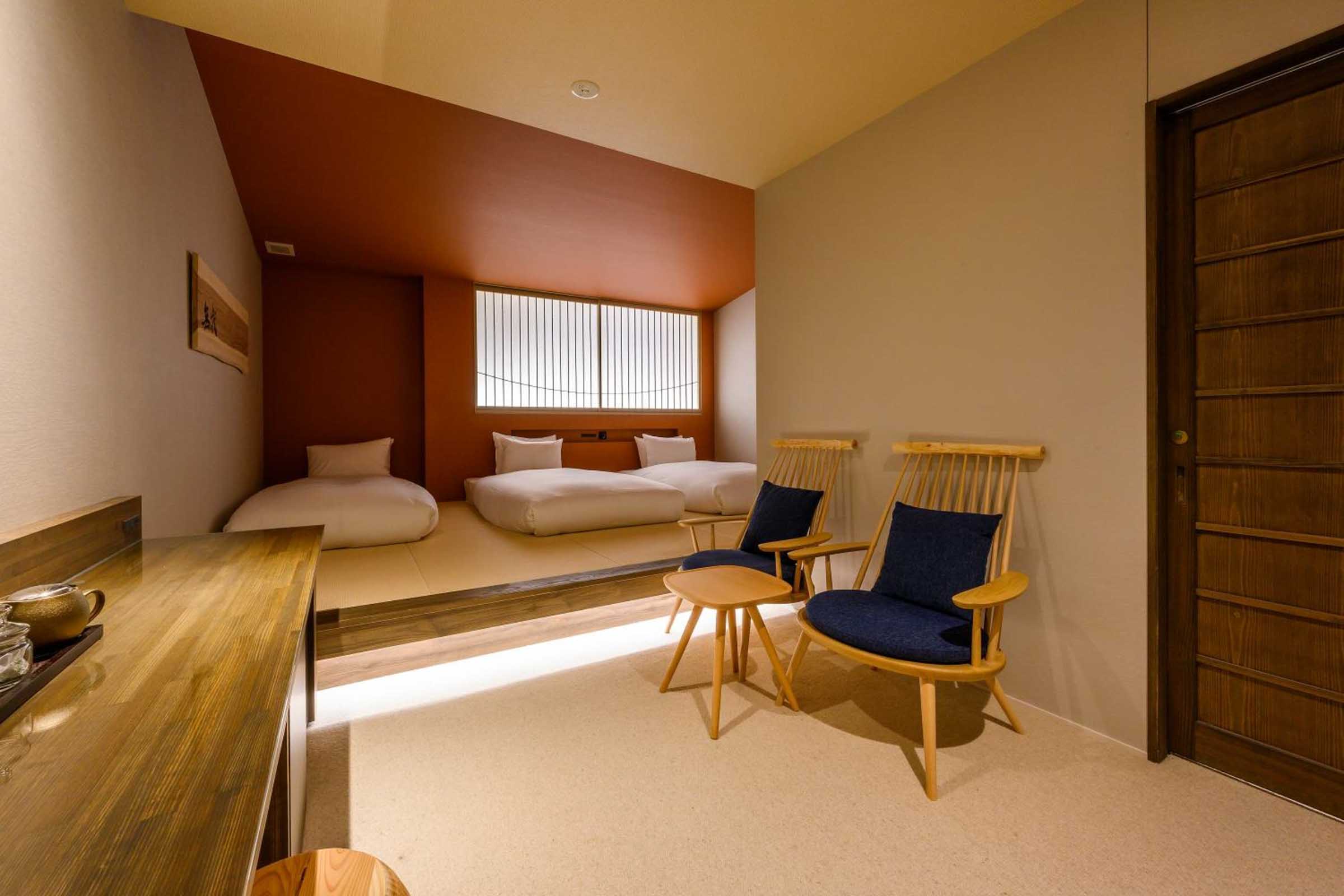
Our Free Takayana Google Maps Locations
Do you need a handy map with all our Takayama locations? We’ve got a Google Map with all the Takayama locations in this post (plus a LOT more). Sign up in the box below and we’ll deliver it right to your inbox, plus our top tips to help you plan your Takayama adventure.
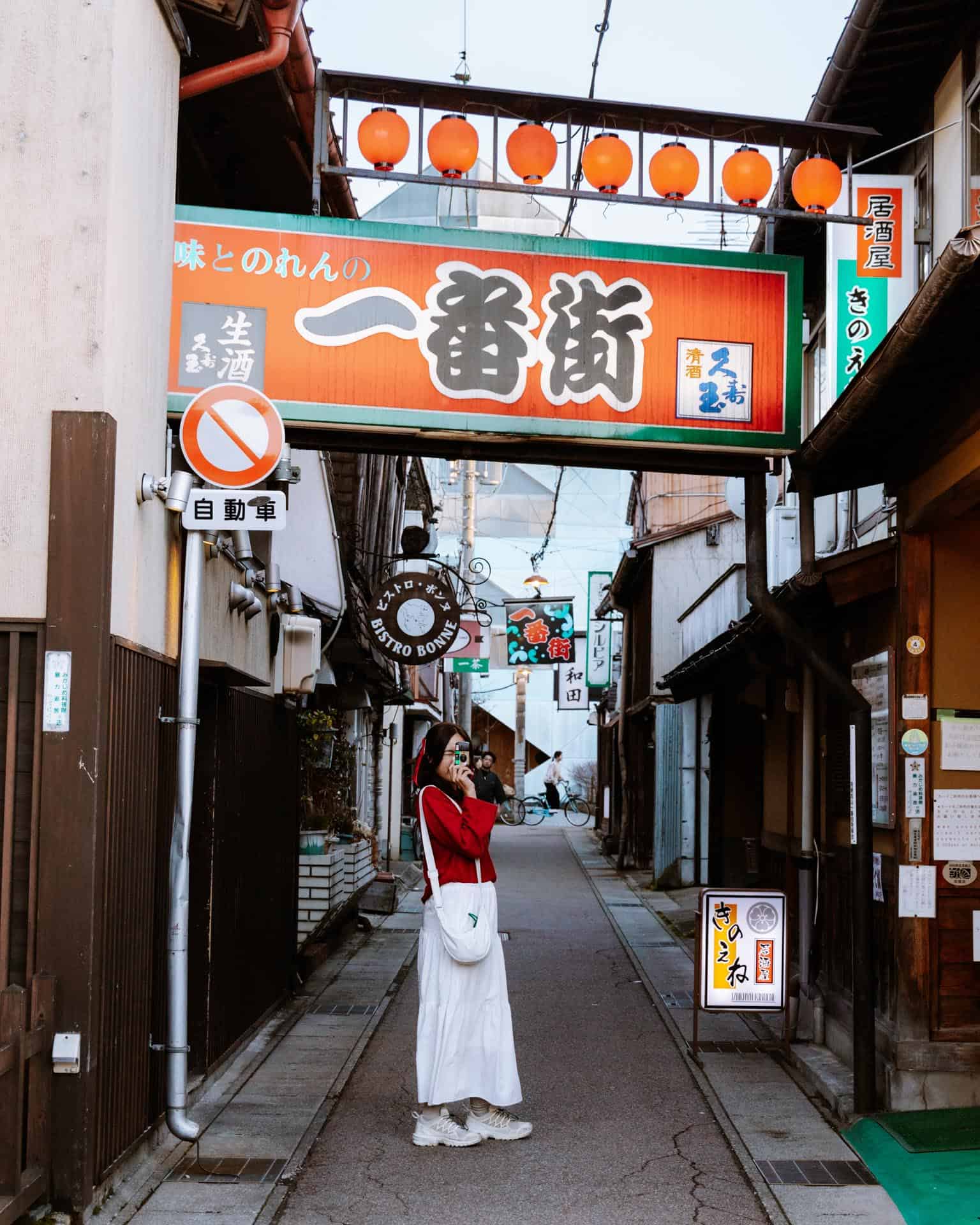
Are You Following Our Takayama Blog Series?
We’ve been to Takayama three times and found so many awesome things to do there. To help you plan your trip to Takayama, we’ve put together guides to the best places we found. You can check them out by clicking the links below.
- Our Ultimate Guide to Takayama: 17 Awesome Things to Do in Takayama
- How to plan your trip to Takayama: Takayama 2 Day Itinerary
- Our Takayama accomodation guide: Where to Stay in Takayama: Guide to the Best Areas and Hotels
- We attended Takayama Spring Festival and put together a guide to help you navigate the crowds: Takayama Festival: Our Complete Guide
- Our favorite hike in Takayama: Higashiyama Walking Course
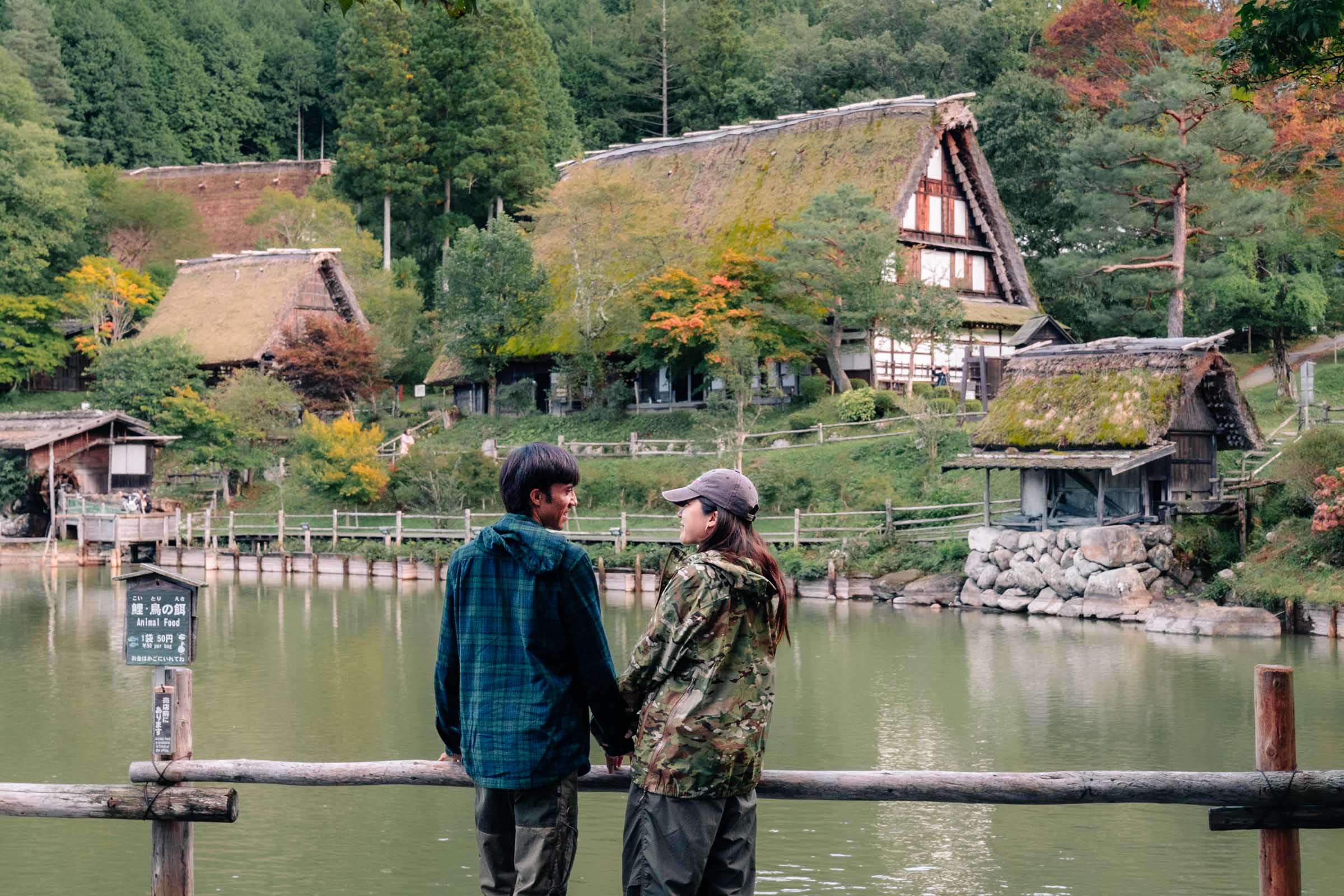
I hope you enjoyed our guide to Hida Folk Village in Takayama. Feel free to leave a comment below if you have any questions! 🐸

